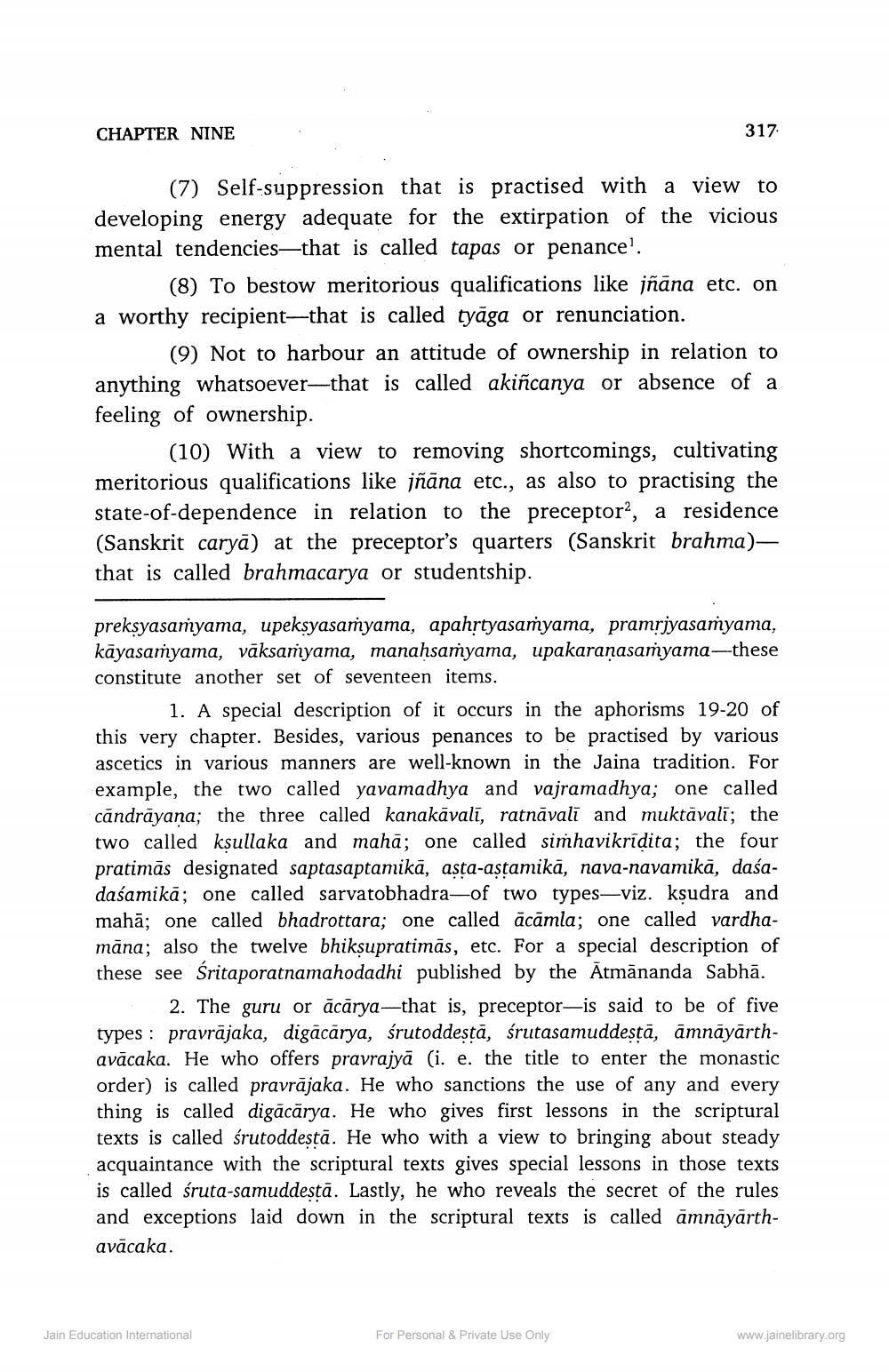________________
CHAPTER NINE
(7) Self-suppression that is practised with a view to developing energy adequate for the extirpation of the vicious mental tendencies-that is called tapas or penance1.
317.
(8) To bestow meritorious qualifications like jñāna etc. on a worthy recipient-that is called tyaga or renunciation.
(9) Not to harbour an attitude of ownership in relation to anything whatsoever-that is called akiñcanya or absence of a feeling of ownership.
(10) With a view to removing shortcomings, cultivating meritorious qualifications like jñāna etc., as also to practising the state-of-dependence in relation to the preceptor2, a residence (Sanskrit caryā) at the preceptor's quarters (Sanskrit brahma)— that is called brahmacarya or studentship.
prekṣyasamyama, upeksyasamyama, apahṛtyasaṁyama, pramṛjyasamyama, kāyasaṁyama, vāksamyama, manaḥsamyama, upakaranasamyama-these constitute another set of seventeen items.
1. A special description of it occurs in the aphorisms 19-20 of this very chapter. Besides, various penances to be practised by various ascetics in various manners are well-known in the Jaina tradition. For example, the two called yavamadhya and vajramadhya; one called candrāyaṇa; the three called kanakāvalī, ratnāvalī and muktavali; the two called kṣullaka and mahā; one called simhavikrīḍita; the four pratimas designated saptasaptamikā, aṣṭa-aṣṭamikā, nava-navamikā, daśadaśamikā; one called sarvatobhadra-of two types-viz. kṣudra and mahā; one called bhadrottara; one called ācāmla; one called vardhamāna; also the twelve bhikṣupratimas, etc. For a special description of these see Śritaporatnamahodadhi published by the Atmananda Sabhā.
2. The guru or ācārya-that is, preceptor-is said to be of five types: pravrajaka, digācārya, śrutoddeṣṭa, śrutasamuddeṣṭā, āmnāyārthavācaka. He who offers pravrajya (i. e. the title to enter the monastic order) is called pravrājaka. He who sanctions the use of any and every thing is called digācārya. He who gives first lessons in the scriptural texts is called śrutoddeṣṭā. He who with a view to bringing about steady acquaintance with the scriptural texts gives special lessons in those texts is called śruta-samuddeṣṭā. Lastly, he who reveals the secret of the rules and exceptions laid down in the scriptural texts is called āmnāyārthavācaka.
Jain Education International
For Personal & Private Use Only
www.jainelibrary.org




